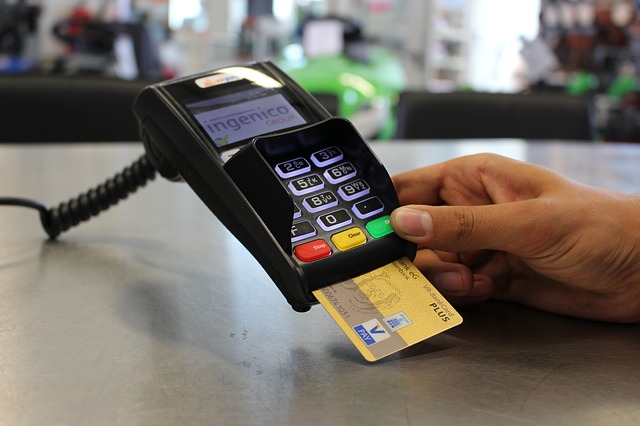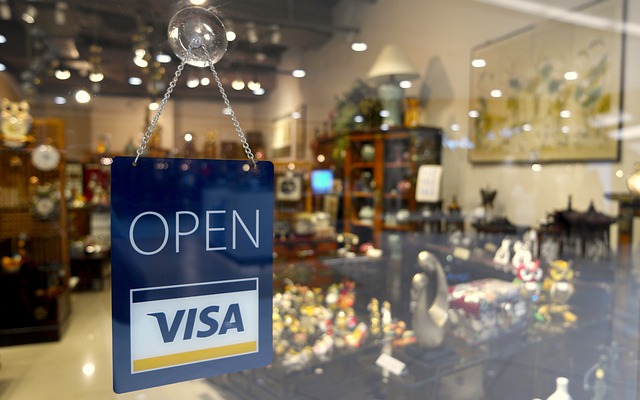In a world where cash payment method have added more companions, adding more payment means accommodating a wider variety of customers. With more holders of credit cards, adding credit card payment as alternative to cash makes great sense.
However, before agreeing to partner with credit card companies and get card reader installations in place, make sure you assess the business advantages and disadvantages of using credit card payment systems.

Just in case you don’t know them yet:
Table of Contents
Advantages of using credit card payment system
It increases sales revenue
Use of credit cards can increase sales for a business. People who would otherwise be unable to transact because they only use credit cards will then be accommodated, broadening the customer base with respect to payment preference.
This is especially helpful if your business caters to international customers who may be bringing with them various currencies you cannot accept, thus eventually choosing to pay using their cards.
It encourages higher transaction amounts
Use of credit cards can also alter customer behavior. According to a study by Small Business Trends, credit card acceptance can also increase chances of impulse buys as customers don’t have to empty their wallet of bills to make a purchase. This means a customer looking to buy a gift for Christmas party might end up also getting unplanned purchases such as Christmas decors, Christmas lights and more greeting cards.
It provides customer convenience
Instead of making a stop at an ATM booth to withdraw cash, a customer doesn’t have to if your shop accepts his Visa, AMEX or MasterCard. By saving time they would have to spend going to the bank, queuing for their turn and returning to your shop, they get that instant gratification of buying now, and worry about paying later. Compare that to the possibility of a customer changing his mind and going elsewhere (say, your competitor shop) instead of returning to your shop after an ATM visit.
It helps build customer trust
By accepting credit card payments, customers have intrinsic sense of trust, knowing that these shops should have passed background checks and complied requirements set by credit card companies. It also helps that your shop’s credit card payment option bears the same identity with the cards they keep in their wallets.
It improves cash flow
Credit card payments are settled immediately by electronic means and credited to your account efficiently. This is a big advantage to both cash and invoices paid through checks: you don’t have to send invoices that are paid later after being cleared by the bank as well as you don’t have to carry lots of cash for security reasons.
It makes your business more competitive
Just like the Internet that creates a level playing field for businesses big and small, credit card payment options allow small business point of sales systems to perform in the same light with bigger competitors simply by providing what they are offering.
Giving customers the choice to pay with credit helps keep customers from buying from one of your competitors based solely on the options they have to buy the product or service with this particular form of payment.
This is especially crucial if you are selling your products online. While credit card isn’t the only option — bitcoin, PayPal and other methods are also available — credit card remains the most preferred means of payment for online purchases with Visa and MasterCard on top.
But just like any other business, such as low-fare airlines, there is no flawless business process out there. Although we see an impressive list of advantages offered by accepting credit card payments, there are also drawbacks merchants need to review before making a decision.

Disadvantages for shops accepting credit card payments
Convenience doesn’t come cheap
Shops accepting credit card payments will have to pay a transaction as well as percentage of the sale amount to the card processing company. On top of that, some companies also charge monthly fees for equipment such as credit card processing terminals.
It can be costly when customer disputes charge
There are possibilities when a customer will dispute a charge and will seek refund for a faulty device, staff error or other reasons. The card processing company will reverse the payment route and you have to return the money to the customer. However, you’ll likely get charged by the credit card company a fee to facilitate the refund process.
It is vulnerable to fraud
For a payment system technology that is over 100 years of history, the effort by scammers to make money off credit cards have made strides to overcome the technology that safeguards transactions. Identity theft, for example, is a problem that arises that when a credit card owner’s identity gets into a thief’s hands, he gets charged for purchases he did not make.
Fraudulent charges are often picked up by credit card companies. However, your shop may also be charged with fees to get out of the mess. They may include processing fee, shipping costs or charge-back fee. A double whammy can also occur when the merchant can be at a loss for the product or service because they are not likely to receive the product back from a fraudulent purchase.
It complicates record keeping
Although payment may be brutally efficient and straightforward, accepting credit cards can also add another layer of bookkeeping for accountants in the business. Obviously, additional effort needs extra time and expense on the part of your business.
Should your business accept credit cards?
It is easy to observe that the benefits of installing a credit card payment processing booth next to your cash register outweighs the disadvantages that come along with it. However, their impact can depend on which businesses your shop belongs and the types of customers you are attracting. Therefore, get to understand your customers fully to make informed decisions.








